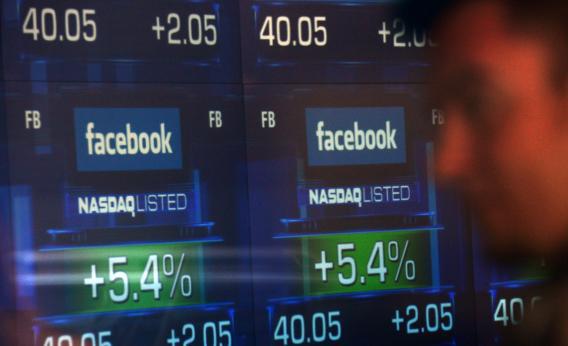Nasdaq boss Bob Greifeld needed to find a salve for brokers singed by his exchange’s botch-job on Facebook’s market debut. The technological meltdown on the day of the initial public offering last month may have cost clients as much as $200 million. Instead, Greifeld fanned the flames.
He offered up a measly $40 million in compensation. That’s barely a third of what Citadel, Knight Capital, UBS and Citigroup appear to have collectively lost because Nasdaq couldn’t confirm orders as Facebook began trading. Knight chief Tom Joyce reckons other losses could add another $80 million to the tab. It’s little wonder these firms are taking the rare step of lambasting the exchange in public.
Moreover, the way Nasdaq intends to fund the payout is controversial. Actual cash compensation is just $13.7 million. Most of that comes from Nasdaq’s gain on Facebook stock on the day, which went into an error account and usually has to be returned to brokers anyway. The other $3 million is the maximum compensation the exchange’s bylaws allow it to pay in any given month for a technological failure. That’s far from adequate for a bourse handling $16 billion IPOs.
Worse, perhaps, is Nasdaq’s offer of cut-price trading fees to cover the other $26 million of restitution. The New York Stock Exchange argues the rebate is anti-competitive, enticing customers to send orders to Nasdaq that it might otherwise have routed elsewhere. Bill O’ Brien, CEO of smaller rival Direct Edge, took an even tougher line, calling Greifeld’s plan potentially illegal and “a shameless attempt to basically turn an investor confidence-eroding event into a competitive advantage.”
Nasdaq can maybe prove it is providing fair compensation for faulty trades for which it is directly responsible, as Greifeld implied in an interview with CNBC. But so far he has only created the impression that his company is trying to wheedle its way out of the crisis on the cheap.
With a couple of high-profile merger failures already under his belt, Greifeld can hardly afford greater damage to his reputation or Nasdaq’s. Managing to galvanize customers and competitors against his Facebook problem - and proposed solution - leaves him more exposed.
Read more at Reuters Breakingviews.
